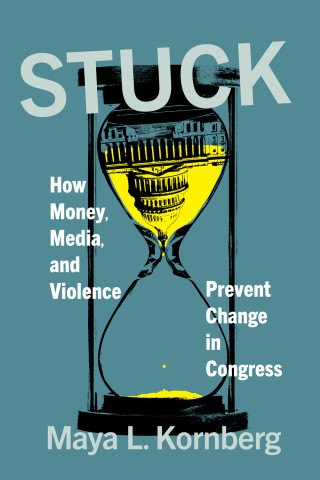
Reviews
I read Richard Perry's thought-provoking book in a single sitting. Written in a lively, engaging style, the book takes evolutionary psychology to task in a perceptive and penetrating fashion.
Book Details
Preface
Introduction
There's a History Here
What's in a Word?
1. Don't Get Me Started
Humans and "Nature"
It Wasn't Always about Biology
But Maybe They Really Are Different!
It's All Uphill from Here
Romantic
Preface
Introduction
There's a History Here
What's in a Word?
1. Don't Get Me Started
Humans and "Nature"
It Wasn't Always about Biology
But Maybe They Really Are Different!
It's All Uphill from Here
Romantic Supremacy
Philosophical Biology
Biological Stories
2. Eugenics
The Right Sorts of People
What's to Be Done?
Parasites and Pests
Manipulating Biology
The Gift of IQ
Boas and "Fixed Traits"
Out with Eugenics, for Now; but We Still Have IQ!
3. Killer Apes, Naked Apes, and Just Plain Nasty People
Enter the Killer Ape...
... Followed by the Naked Ape...
... Followed by Nasty People
It Gets Worse
A Serious Flaw in the Argument
I Know, but It Still Seems Real
Back to Eugenics
4. Mind Games
Social Programs? Not So Fast
Seeing Double
Wait— What Were Those Scores Again?
You Say Heritability, I Say Inheritance—Let's Call the Whole Thing Off
Let's Get That Social Ranking Straight
Nothing If Not Persistent
Twins, Again!
Hot Air from Canada and from across the Pond
Everyone Needs a Friend
5. Sociobiology
"Go to the Ant, Thou Sluggard. Consider Her Ways and Be Wise"
Edward, Have You Met Herbert?
Quiet... I Think the Genes Are up to Something
What's Good for the Goose
Wait... Are We Still Doing Science?
Pull Up a Chair; It's Story Time
The Generic "Primitive"
Americans and Brits
A Genetic Guide to Behavior
6. And Yet Another New Science of the Same Old Thing
It Blinded Them with Science
It Takes a Village
Making the Exotic Familiar, and the Familiar Genetic
Waltz of the Pseudohypotheses
What's with the Big Brain, Anyway?
What, Indeed?
7. That's Just about Enough of That
"When Wild in the Woods the Noble Savage Ran"
Steven— You Look as If You've Seen a Ghost
Calm Down; It's Only an Abstraction
Are You Still Here?
What's the Big Deal?
What's the Score So Far?
Some Things We Do Know about the Pleistocene
Going Off Script
Battle of the Sexes?
A Word about Ethnography
8. It's Not That Simple
So What's the Alternative?
Ah, Tradition
Somehow It All Fits
9. What's the Agenda?
Solutions That Cause Problems
The Beat Goes On
Reflections on the Mystique of Science
Notes
Suggestions for Further Reading
Index





